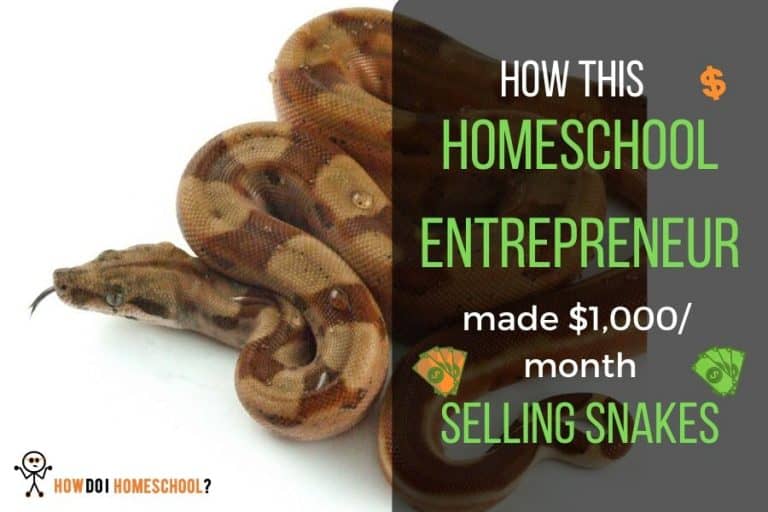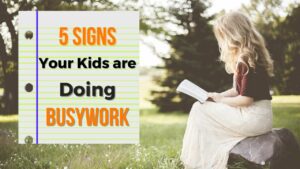Seamus is a homeschool entrepreneur that I met at church. One thing that makes everyone love talking to Seamus is his sense of humor and thoughtful responses to questions. Despite the horrific medical problems he’s been through – problems that would throw the best of us into a state of hopelessness – Seamus is always happy and willing to spend a lot of time talking about the things he’s passionate about. Often this is about his unwavering faith in Jesus and his hope of eternal life with Him, despite the difficulties he has been through.
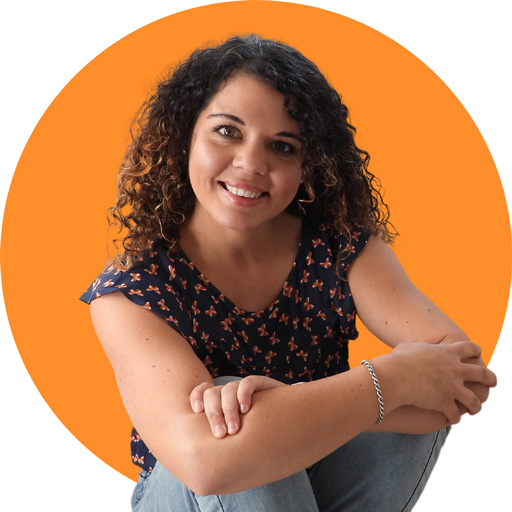
I hope you enjoy reading this blog post. If you want to do my course on how to homeschool, click here.
In this interview, we’ll look into Seamus’ background and see what he thinks has made him the person he is today. We’ll talk about his homeschool experience and how that led him to develop business skills that allowed him to become a homeschool entrepreneur.
Let’s get started.
The Snake Question
Rebbecca: So, before we get into this interview a little more, I had to ask you about your ‘pocket money that you made when you sold snakes…can you tell me a little about this?
Seamus: That developed out of a borderline obsession with nature and reptiles. After getting more into the world of snakes and lizards and enjoying finding out how to breed them, I think I just ended up in that world. I started going to reptile shows and selling geckos, carving out a niche breeding rare reptiles people were interested in.
I ended up importing some from South Africa and Madagascar. It just sort of went from there – a symbiotic relationship between a hobby and a business. It had to merge into a business because it had to pay for itself to a certain extent.
Tell me a little bit about your life now and what you’re doing.
I’m a bit of an oddball, I suppose. The way I was raised was a bit international. I’ve always grown up with grandparents that had a strong appreciation for culture and nature – especially my grandfather. That was a large part of my upbringing. A lot of the literature I was raised with was also integral in my life and formed the way I think now. It brought me into exploring both the outside world and the intellectual world.
My grandfather gave me a lot of old literature and old things like butterfly nets, as well as many other things that helped my learning along. We did a lot of nature walks that developed a very strong love of nature in me. I guess I always had a desire to be a naturalist – that turned into a broader appreciation of nature through things like getting involved in paragliding as a 14-year-old so I could see how things look from a bird’s perspective.
I ended up getting a pilot’s license and almost completing commercial pilot training.
Then my life changed course before I completed the pilot training, and I soon became sick with Inflammatory Bowel Disease (IBS) and was essentially fighting for life for a very long time after that. But, this is something I wouldn’t reverse because it’s broadened my perspective on a lot of things. This is because I’ve ended up pursuing many areas that would have been considered a luxury to pursue beforehand, but that became necessities to pursue after I became sick (i.e. alternative medical treatment after the traditional system could help no more).
That’s quite peculiar.
I’m so thankful I’ve been able to do this because as I’ve become older, I’ve become increasingly uncomfortable with having to fit a mold of specific career options – you know, when people ask you, “What are you going to do for a career and so on.” But, I don’t fit molds well.
Although it’s really odd circumstances to be in this position, I’m really thankful. I’ve got quite a few options in front of me, but I haven’t quite fixated on one. But, I’m aware that – not only can I do these things that were previously just hopes and dreams – but that I must do them.
Many of the areas I want to pursue tie in with my personality, whose foundation is a love for God and everything he’s made. Going off that, there’s a large amount of curiosity. I always have a desire to get to the bottom of something and find the truth. I can’t get peace until I have. In some senses, I’m adventurous.
I’ve been given a skill-set that isn’t completely defined as yet. However, the skill set is coherent even though it’s still being cohered. I keep on finding myself on a different – somewhat separate path that has largely come about as a result of my illness, where I’ve largely had to be an outlier and learn to accept that and get used to it.
How bad was your illness?
Life-threatening on average twice a year for the last five years. In my first year of the illness, I lost 55 kgs from an original weight of 92 kilograms. [Seamus is around 6 foot tall]. It’s been a very violent disease in that you can go from being fine to being in big trouble in three days and life-threatening trouble in five days. It’s bad in the sense that it’s been consistently beyond the reach of the traditional medical system and conventional healthcare.
That is a lot of what’s shaped being fine with being an outsider and facing fear head-on and stepping over it. I say it’s not cohered yet because I have to find the interface between the realizations I have made and the conventional knowledge out there, which isn’t always in harmony.
But, there needs to be some sort of interfacing to actually accomplish something.
Why did your parents homeschool you?
To have academic and intellectual freedom.
When we originally started out in the school system, it wasn’t necessarily a disaster. We had the normal problems of bullying and so on.
But, they realized they didn’t want us to grow up indoctrinated in the school system. They wanted us to grow up knowing how to think. They also didn’t want a one-size-fits-all approach. They wanted to be a bit more flexible with the curriculum, which could cater to our strengths.
Also, because in amongst the one-size-fits-all school system that we were in, the ‘what to think’ goes too far, especially as regards fundamental beliefs.
How did you enter tertiary education as a homeschooler?
I was in the North American education system. As a homeschooler, you have a couple of options.
You could either follow to a certain extent the provincial curriculum and get credit for that if you sat the exams. So you could go to a high school and sit for those exams – a couple of friends did that.
Or you could do the SATs. What I ended up doing was more convoluted. I gained some credits by going through the more provincial curriculum. But then I ended up having enough credits from being involved with a couple of university programs – initially informally – and then got credit for that. I entered university through that.
For most homeschooling families, getting into university seems like a monster issue, but it’s not really that difficult.
Would you homeschool your children, and if so, what are the reasons you would homeschool?
Without a doubt, I would homeschool them.
My reasons for homeschooling are because I want:
- my children to have the freedom to develop according to their natural capacities, which are far greater than the public school system caters to. A large part of it is also that the rate of change in the world today (and in the education system) is pretty negative for kids. There’s a continual decrease in stability in our thinking and in a society that is not going to lend itself to producing stable kids.
- to start educating my kids much earlier than public schools allow for.
- their education to be more outdoors-based and more practical skills-based than students get who have to sit at a desk all day.
- my children to develop life skills early on because, I think, we don’t give kids enough credit for their capacities and capabilities if you just push them a little bit.
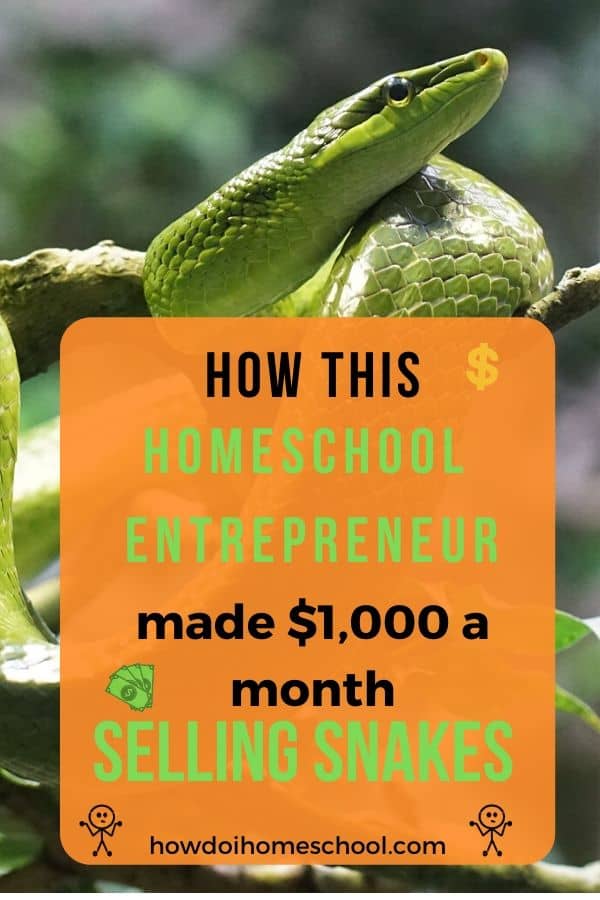
Would there ever be a reason you would send your children to school?
If there were a short-term crisis of any sort. And if I did, I would be very careful about the school they attended. And I’d be very careful about assessing the kinds of families in those schools.
And, I might think about sending my kids to school if, for example, they needed to pick up a course to get qualifications to enter tertiary education.
But that’s about it.
Do you think they wouldn’t be able to get those qualifications apart from school?
I think they could. The reason I say that is because of the possibility of the nuances between state education systems and requirements. But, if I were to think about this from the start, I’d get a plan in place, so they didn’t need to do these sorts of things because it’s not necessary, I don’t think.
What are the best ways to make a homeschool successful?
Having both a coherent plan and approach to start with and simultaneously the flexibility to recognize where a child is at and to accommodate that or to facilitate certain aspects of their personality. I also think especially, being disciplined in homeschooling and pushing kids to excel – not necessarily in the areas you want them to, but in the areas, they’re naturally excelling at themselves.
Do you think schools don’t push kids enough?
Sometimes that has a lot to do with the school – public, private or Christian schools. Some kids are pushed really well, but the problem with it is that schools can’t accommodate the variety of people that exist and the variety of minds.
Also, I think it’s the way in which schools push kids. I don’t think pushing kids to study their books for ages is a good way to go about it. Rather, we should push kids hard and have them firing on all cylinders occasionally. So, for me, pushing them hard would be giving them a reasonable amount of classroom time, complimented by immediately giving them certain forms of physical exercise. I think that would encourage their focus and come alongside their natural physical development.
We should facilitate both their physical and mental development.
Have you seen any messed-up homeschools? What do you think went wrong?
I’ve seen a few. With a couple of them, it wasn’t that they necessarily failed, but the kids sort of turned out to be – well – flunks at life. Academically and socially.
It sounds a bit awful, but they ended up being just low-wage workers who eventually developed some sort of functionality if – in essence – their parents hadn’t been lazy.
With this particular family, I can think of; their parents hadn’t made a plan. I wouldn’t say they were homeschooling, though. They just weren’t schooling. They were leaving the kids to figure out what they could – which changed pretty quickly when they became teenagers, and there was fun to be had.
Then when I think of another family, I would say they didn’t fail it, but socially, they didn’t get it right. Part of that was the location – they lived in the remote woods. They also had parents who were stubbornly and willfully blind to the kind of kids they had.
Their kids were socially undeveloped but also underexposed. The parents were perpetuating the belief in themselves that the kids were completely normal and were going to become great people. I can think of one where the mother thought he was going to become a prominent public person where all he could talk about was lego…
Essentially, they lived mentally in a box. The kids have turned out functional as far as careers go, but the parents weren’t really living in reality and projected that upon their kids.
I think that’s important, really. We need to make sure we’re properly in tune with reality because if we project something that’s not real on our kids, we handicap them.
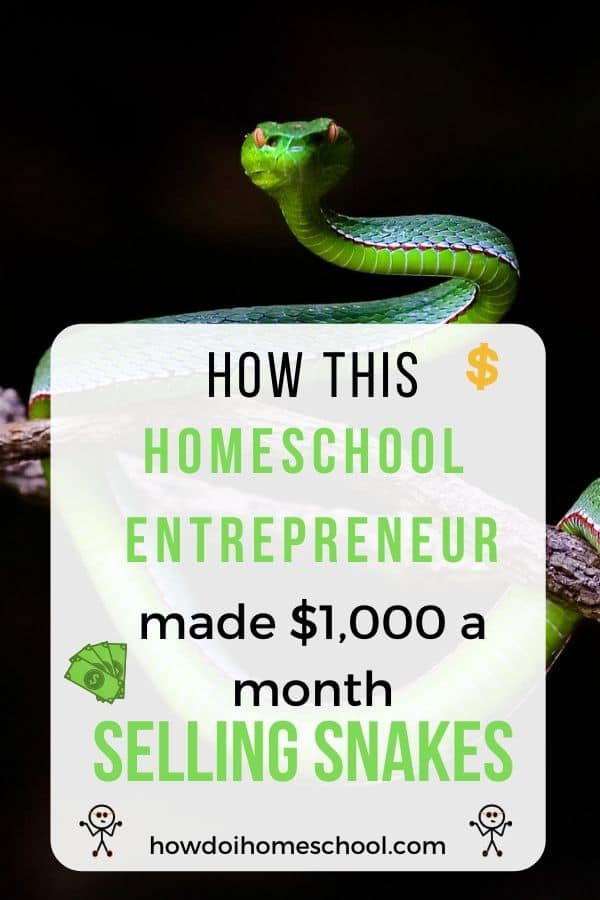
Has homeschooling affected your Christian faith, and if so, how has it done so?
I think it’s allowed it to develop a lot better. Especially when I was younger, I had a lot more time to develop my faith. Also, I wasn’t presented with lots of distractions like my friends at school were, which were – if I’m honest – completely inconsequential small things that ate up a lot of their time.
Being bought up in the context where you develop how you think and get to observe so much of the natural world – those two things really compliment each other. It also strengthened me because I saw just how many of the kids that were in public school were going off the rails at an early age – and that was a very large percentage of them. There was no spiritual development in the setting that they were in – that is, Canadian public schools. Some of them had a semblance of faith, but it was a mild understanding of their faith that would quickly disappear around the age of 15 or 16 once they were further into high school…and hormones.
The thing I noticed with my public school friends is that they just seemed to accept what they were taught. This meant that with evolution, Darwinism, and worldviews around that there was a herd mentality around that, so they all accepted it.
Actually, it’s an interesting point because some of them became quite self-destructive after deciding that they could reject the concept of God and do what they wanted – that was a big problem for some of them. And it handicapped a lot of them because, for many of them, it’s not until after university that they start questioning the worldview they were raised with. They don’t recognize that spiritual development should be as much a part of their education as physical and mental elements. The former is majorly neglected by the public system.
How did you learn business acumen as a homeschooler?
It started with being willing to have a go at things: trial and error. I’ve always had an inclination towards entrepreneurial ventures. Not necessarily to just make money but to continue developing a theme or project in my life.
The first one I thought of was the reptile venture which I called ‘Gollum’s Geckos’.
I always had plenty of ideas, and if other people agreed they were good ideas, I’d always want to see if it could go further than being an idea. And there was a lot of trial and error in there.
I don’t know that it was acumen – but there was a lot of enthusiasm – you know, just wanting to have a go. My parents helped that a lot by letting me have a go at things instead of saying, ‘That’s ridiculous. Don’t try that.’
One of the other businesses that I ran that turned out quite well came from my interest in nature and flying. I’d developed an interest in remote control devices. I realized there was a substantial gap in the market for these machines called ornithopters. Ornithopters are essentially mechanical birds. And my parents let me have a crack at ordering 100 of them from China which worked out to be a lot of fun. (I was 15-years old when I ran the ornithopter business. )
But, this business venture meant a lot of my understanding developed because I learned how to communicate with real businesses and people overseas. I also learned how to market, process international payments, and give good customer service.
With marketing, I think you can learn a certain amount of marketing from social skills and learning how people think and what they respond to.
I’ve had a tendency to spot certain things that people weren’t paying attention to. These weren’t necessarily the next bitcoin (although that was one I spotted) or whatever.
Interjectory Question: So, you bought Bitcoin then?
The year Bitcoin came out, I thought, ‘This is a good idea,’ and I should have a crack at it. So, I asked someone, and they said to save my money, work my job, and don’t take risks. In hindsight, if I’d risked $100, I’d have a lot of houses right now.
Actually, it turned out that I had good instincts on these things (and I don’t want to be arrogant in saying this), but a lot of those things didn’t eventuate because people told me it was too unknown or too risky. But, if I think about when I homeschool my kids, that’s exactly the age I would want them to take risks because that represents the least loss to them at that age if things do go wrong. And they are much more open and flexible to learning and will learn fast.
And they have extra cash because they’re living at home.
Exactly.
When you’re young, you feel fearful about approaching a businessman. But businessmen treat you more enthusiastically and with more effort because you have that enthusiasm. I think that’s because a lot of them started quite young, doing their own thing. I was quite surprised when I found myself sitting at the top of a skyscraper casually talking with the CEO of a big company. That didn’t fit the stereotypical picture I had until I realized he’d started from scratch and didn’t get a degree until he was 32. He’d also followed a non-standard path.
Do you think other homeschoolers could carve out their own entrepreneurial niche and start a business at home easily as well?
Definitely, I think there are multiple ways of doing this. Pay attention to what people are doing now and what they’ve done a lot of. Pay attention to where a market might be saturated – that would be a harder place to start. But, it’s a good idea to start from anywhere because at a younger age, discouragement lasts less long, and they recover faster. Part of the mindset where you look for niches is very much facilitated by homeschooling.
There are a couple of ways to do this. You can:
- look for a niche or
- come across a niche.
Sometimes it’s quite surprising because you just need to provide something basic that you wouldn’t think people are that interested in. But they turn out to be, and you’ve got the foundation for a very good business. We now have a lot more resources with Youtube available. You don’t need to find fancy books about it anymore because there’s so much material available online.
When you homeschool, you’re much more ideally positioned for that because you can modify your schedule to accommodate this, whereas this is a lot harder to do in a public school system.
Are you working on any business projects at the moment, and what do they look like?
Yes. They mostly relate to health. Some are developing devices that can be used for healing and wound regeneration (or just for general health). Some are importing specific supplements that aren’t available in the West but that are very beneficial for your health (they have low side effect profiles).
Other ideas are a lot more practical – simply selling very basic bread and butter supplies that others aren’t providing but that I can get access to. I’ve noticed that doing this would be a really boring business idea, but it should be quite stable and provide a good income.
Then others are a bit weirder. They’re things you might find in an outdoor adventure shop.
So there are multiple ideas – I just have to pick a couple to focus on.
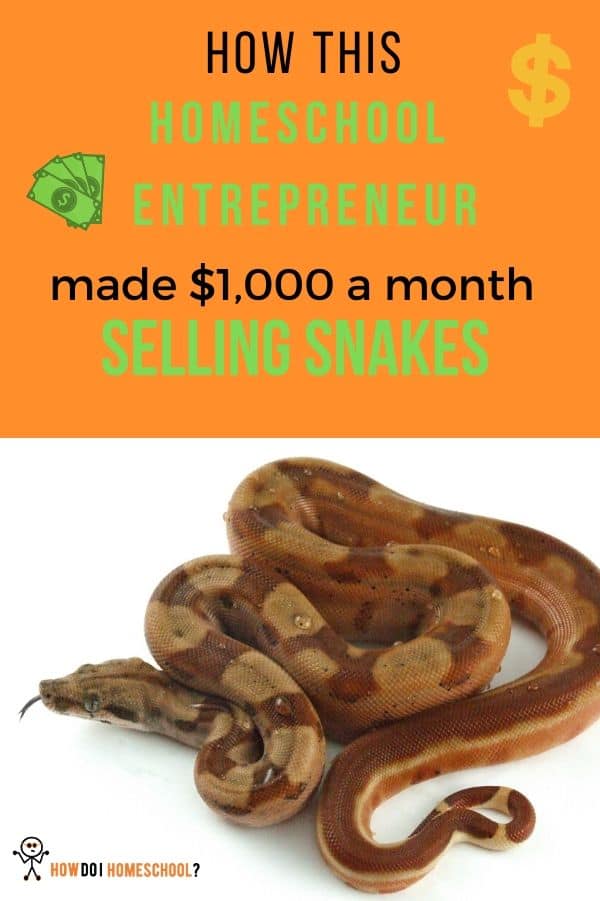
Have you heard of any other homeschoolers who have done something similar to you? (That is, started a business when homeschooling?)
Yes, I’ve heard of quite a few entrepreneurial homeschoolers.
One person that stands out was a guy who started a business at 15 importing miniature motor vehicles from China. By the age of 18, he was importing them by the container load! He made a very good business out of those as well as various online businesses.
I can also think of another homeschool friend who is a pilot – but he’s not just a pilot. He ended up making furniture of all things because the people who moved into his old houses liked the furniture he had made so much. And that’s turned into a great business where they’ve had to set up their own garage.
Another one ended up ferrying planes around the world. He was good at what he was doing, and a boss from another company asked him to start a business up. It involved quite a lot of logistics and planning, and he had those skills, and that’s ended up being a full-time thing for him.
Quite a few of these entrepreneurial homeschoolers don’t sound necessarily like innovative new ideas, but they weren’t necessarily served. And these homeschoolers have found a good niche and made a good income out of it.
What would you say to a person who is thinking about homeschooling?
Do it. It’s worth it. Consider things carefully in the sense of how you choose your curriculum and how you consider the natural tendencies of children and what they’re inclined to. Pay careful attention to what their capacities are, and I would look broadly at effective education methods to incorporate into homeschooling.
But, do it. *laughs*
